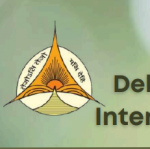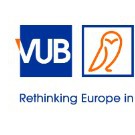UNU-CRIS at the Global Water Futures Program – Open Science Meeting (GWF2022)

Nidhi Nagabhatla will be representing UNU-CRIS at the upcoming Global Water Futures Program – Open Science Meeting (GWF2022) an annual gathering of water researchers that will bring together the program members, global researchers, affiliates, partners, collaborators, stakeholders, and wider water research community across Canada and beyond to share latest scientific achievements and success stories from across our wide range of projects and program areas, and connect with stakeholders and communities alike to provide updates on end-user solutions and support the actions needed to secure water future for all. With the theme: Knowledge to Action- the event will focus on three main dimensions:
- Managing and governing water futures –direct governance and management research as well as tools and models to support innovative water governance and management to better respond to climate change and the Sustainable Development Goals.
- Water-related risk reduction: noting that risk reduction is a clear and critical knowledge to action pathways, and mechanisms for addressing risks by generating knowledge, models, and tools, to reduce risks faced by ecosystems, various economic sectors, and individuals and communities.
- Harnessing data and knowledge: to improve water practice –how models, tools, apps, sensors, and scenarios are deployed to improve water practice and what other opportunities exist (e.g., artificial intelligence).
Nidhi Nagabhatla is a program/project member of GWF and contributes to the GWF project as a team expert: Ohneganos an indigenous water research program for water security of indigenous people and community water research
Presentation Title: Transformative Governance, Engagement & Equity for Action on Adaptive Water Futures
Session: Human Dimensions - Impact and Management
Authors: Nancy Doubleday, McMaster University | Nidhi Nagabhatla, UNU-CRIS & McMaster University
Abstract: Water governance qualifies as a "wicked problem" and wicked problems require transformative solutions. This paper offers a rapid assessment of policy developments since the GWF Second Open Science meeting with respect to the key concerns of governance, engagement and equity as they relate to the broad goals for advancing integrated water governance and water security policy, across scales and boundaries. In 2019, we identified governance, engagement, and equity as strategic concerns for achieving secure, adaptive, water futures targeted by SDG 6. However, to successfully meet timelines, we also recognized the need for synergy and acceleration. Encouragingly, new sensibilities have strengthened the overarching policy discourse, and we flag a range of emergent and convergent policy drivers, including reporting from the Intergovernmental Panel on Climate Change, (IPCC), the Intergovernmental Science-Policy Platform on Biodiversity and Ecosystem Services (IPBES), and the World Health Organization (WHO), as well as contributions by the Canadian government, signalling shifts, based on the capacity to accelerate progress, and foster increasing inclusion, cooperation, and equity while transforming governance across scales and boundaries. The roles of Canadian research partnerships in advancing the social-cultural-ecological drivers in enabling high-level discourse are also considered. In the above context, by explaining intra and inter-sectoral partnerships and cooperation, between or among user groups on water use/allocation/management actors, agencies, scopes, and scales (supranational to subnational, with particular focus on underserved populations and indigenous groups), we will comment on the interface between SDG 6, 16 and 17. For instance, Target 16.7- the calls for responsive, inclusive, participatory, and representative decision-making at all levels, and target 17.14 outlines the need to enhance policy coherence for sustainable development. We conclude that initiatives based on advances in accelerating SDGs, and on identifying new opportunities for social innovation that are informed by inclusion, equity, and justice create transformative capacity for governance. Using cross-scale, multisectoral examples from Global Water Futures supported research, as well as a current policy we offer an analysis pointing to fruitful directions for policy alternatives that converge in strategic action to advance the targets and goals of SDGs, recognize rights, and more fully engage with diverse, cross-scale interests to respond effectively to wicked problems of water security through transformative governance strategies.
Keywords: water security, transformative governance, cross-scale engagement, equity, justice, knowledge for action
To tune in to the session on Day 2: May 17: 1235 – 1245 CST (1435 - 1445 EDT) you can register (free of charge) at REGISTER | GWF 2022




